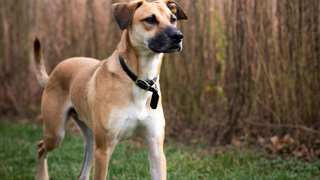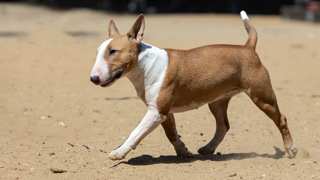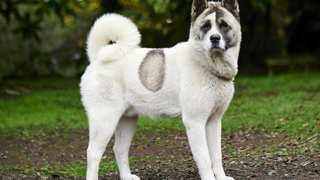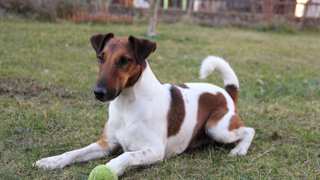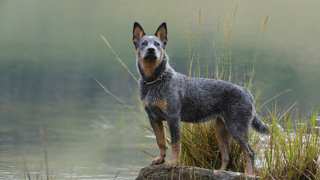These working dogs are athletic, muscular, and task-oriented, so German Pinscher exercise requirements are pretty high. GPs are very intelligent, and will need a variety of daily activities that both condition them physically (walking, jogging, fetch) and stimulate them mentally (canine sports). They make excellent bicycling companions as well.
The typical adult GP, depending on its age and overall activity level, will need at least an hour of proper exercise per day--which you can achieve with a couple of long walks, jogs, or bike rides and a moderate period of play. You can start exercising your GP puppy when it's three months old by taking it on short (5- to 7-minute) leashed walks, then you can increase the walks' length and frequency as the puppy grows. And these early walks are a good opportunity to start teaching the pup obedience, by way of leash training: make sure the puppy walks beside or behind you on the leash, instead of being allowed to lead or "tug" on it. This, in the puppy's mind, establishes you as the leader, and should make training easier as the puppy matures.
A few things to keep in mind when exercising your German Pinscher: first, puppies younger than nine months old shouldn't participate in activities that include a lot of jumping, running on hard surfaces, and navigating of stairs, as doing so can injure their still-developing joints and bones. And regardless of age, it's very important that all GPs are leashed when in public. These dogs have very high prey drives and are bold and courageous--which means they'll chase animals like squirrels and cats, cars, bicyclists--or anything else that interests them! A leash will help you control your GP when it tries to chase things. Even when exercising in your own yard, the area will need to be securely fenced to keep the dog from running off. Otherwise, these are healthy, hardy dogs that can exercise in a variety in situations and weather conditions.
Precautions aside, exercising your GP every single day is a must. These dogs are active and athletic, plus they have very assertive personalities--and without consistent activity they'll become out of shape, bored, destructive, and even aggressive. Regular exercise will be great for the dog's peace of mind--and for your own sanity as well! A few exercise ideas:
- Walking/Jogging/Bicycling: Two 30-minute walks (or 20-minute jogs or bike rides) per day is a good target
- Fetch/Frisbee: These dogs will chase a ball, stick, or Frisbee for hours
- Tug-of-War: Great indoor, rainy-day activity; use a rope or old towel
- Canine Sports: GPs can excel in obedience and agility trials, flyball, and other events
- Hiking: Excellent bonding activity; bonus if you can find a remote area where the dog can be off-leash
When indoors, it's a good idea to give your GP access to one or more balls or chew-toys that will allow the dog to burn excess energy. It's also recommended that you establish a regular exercise schedule for the dog, such as walks, jogs, or bike rides after breakfast and dinner and a play period in the afternoon.
